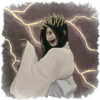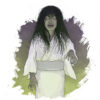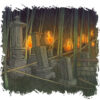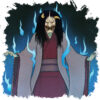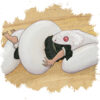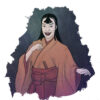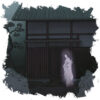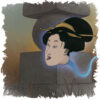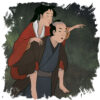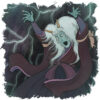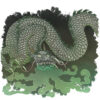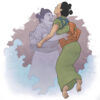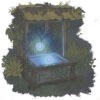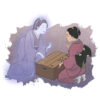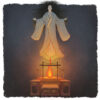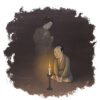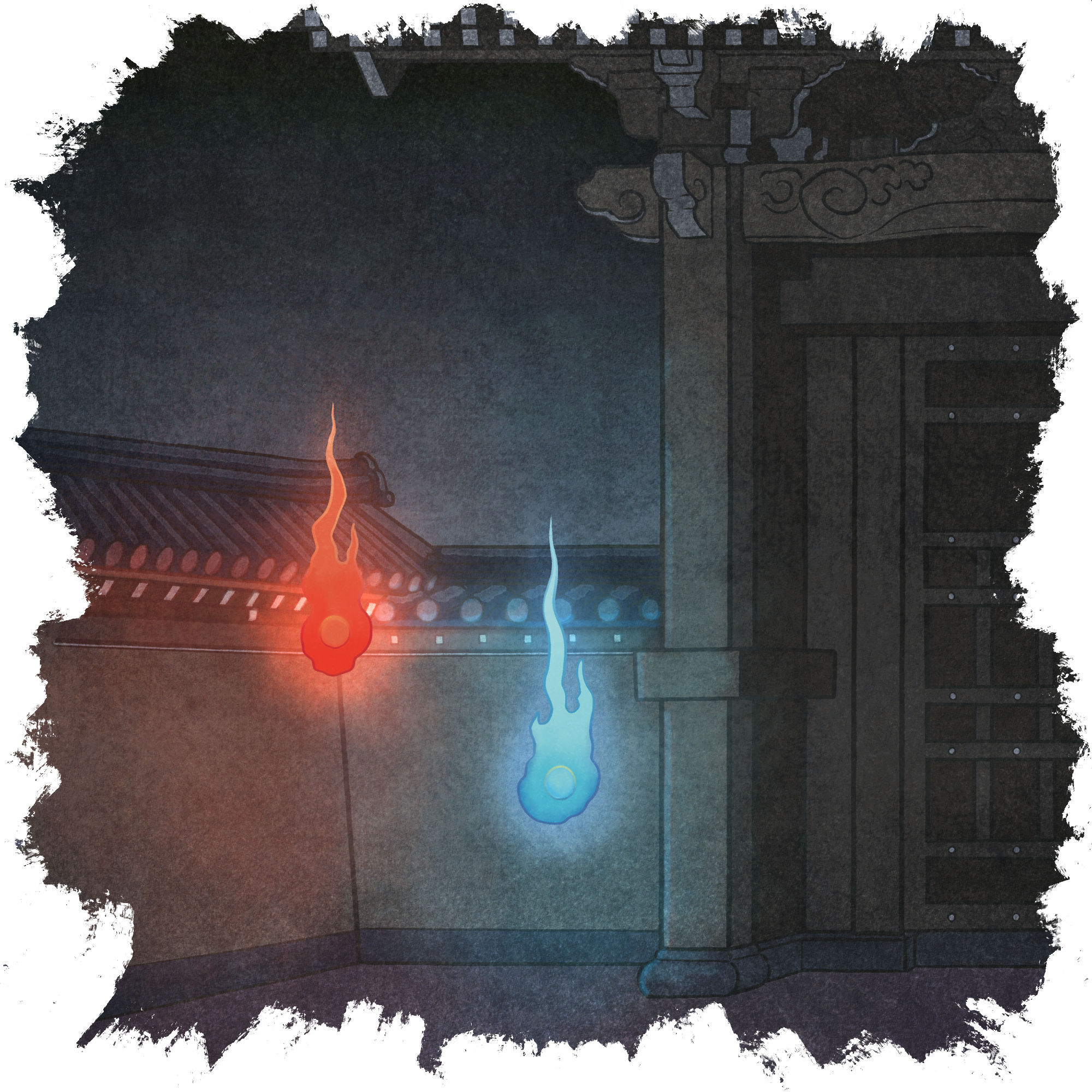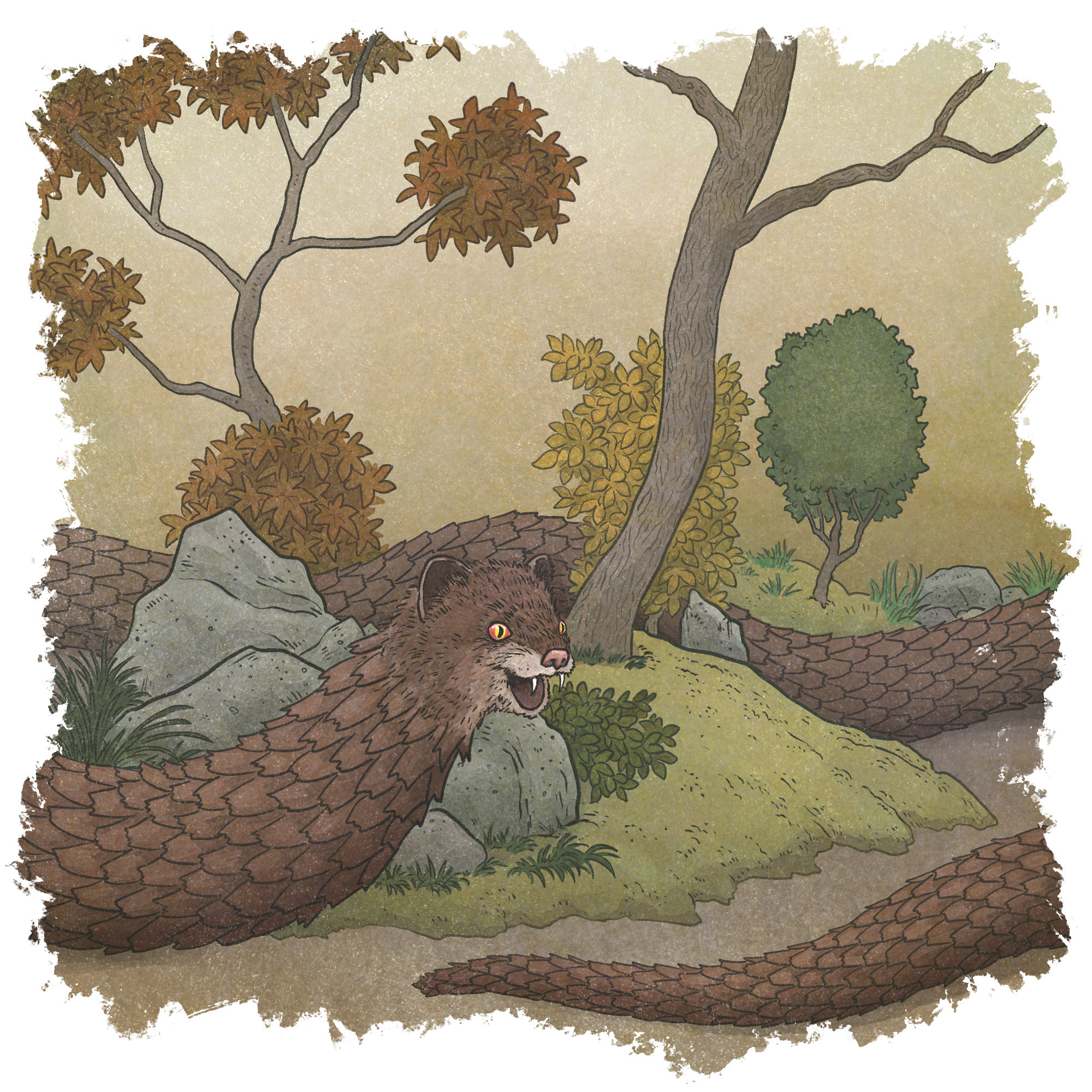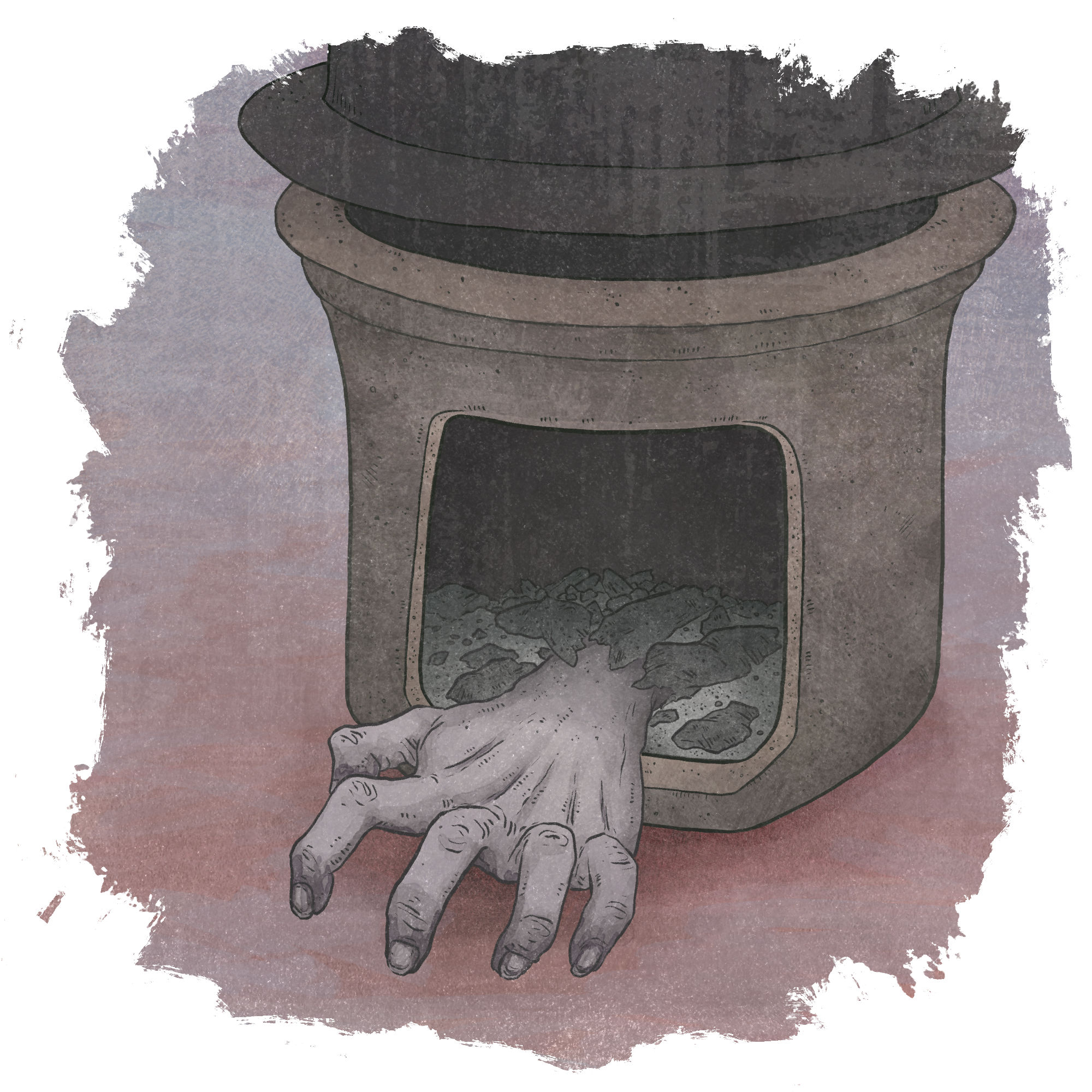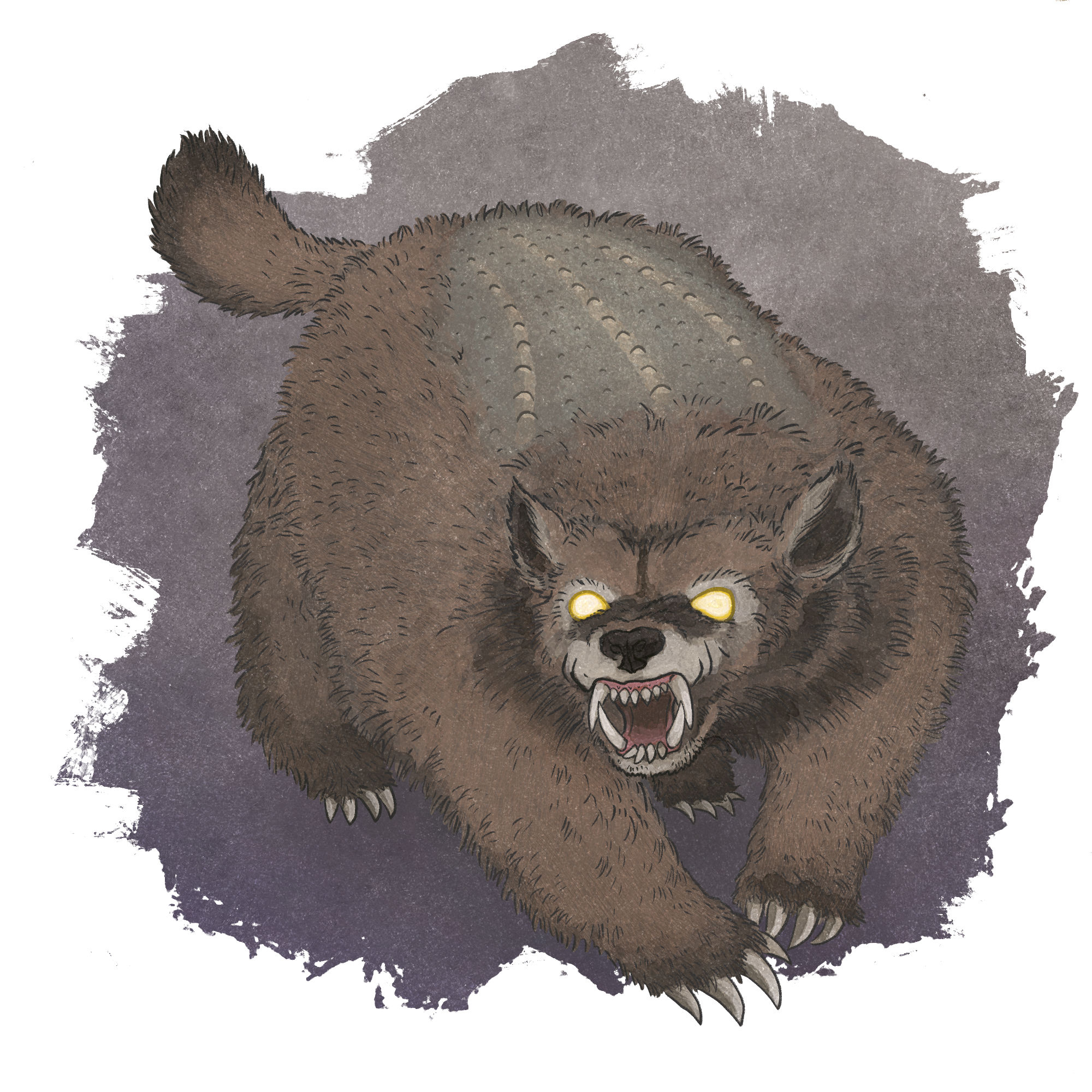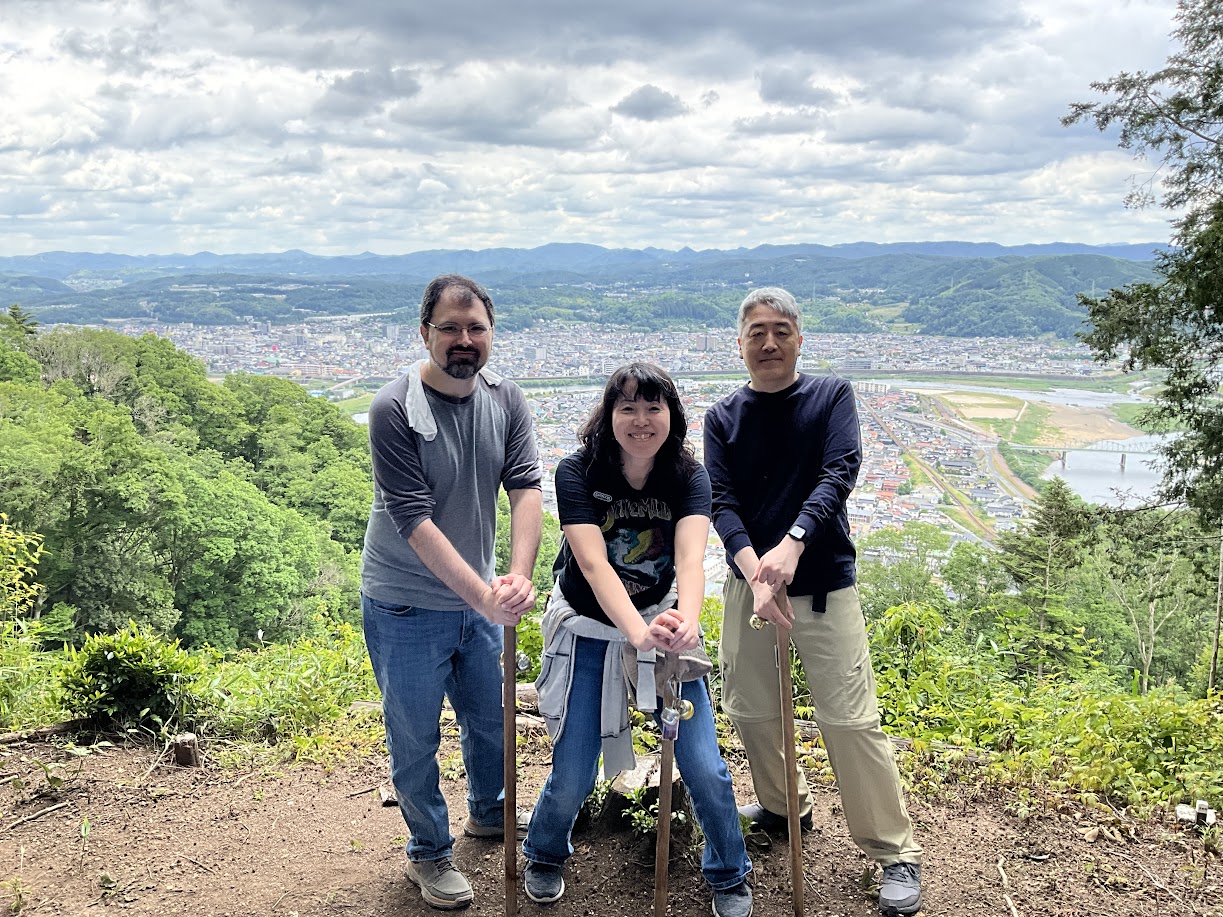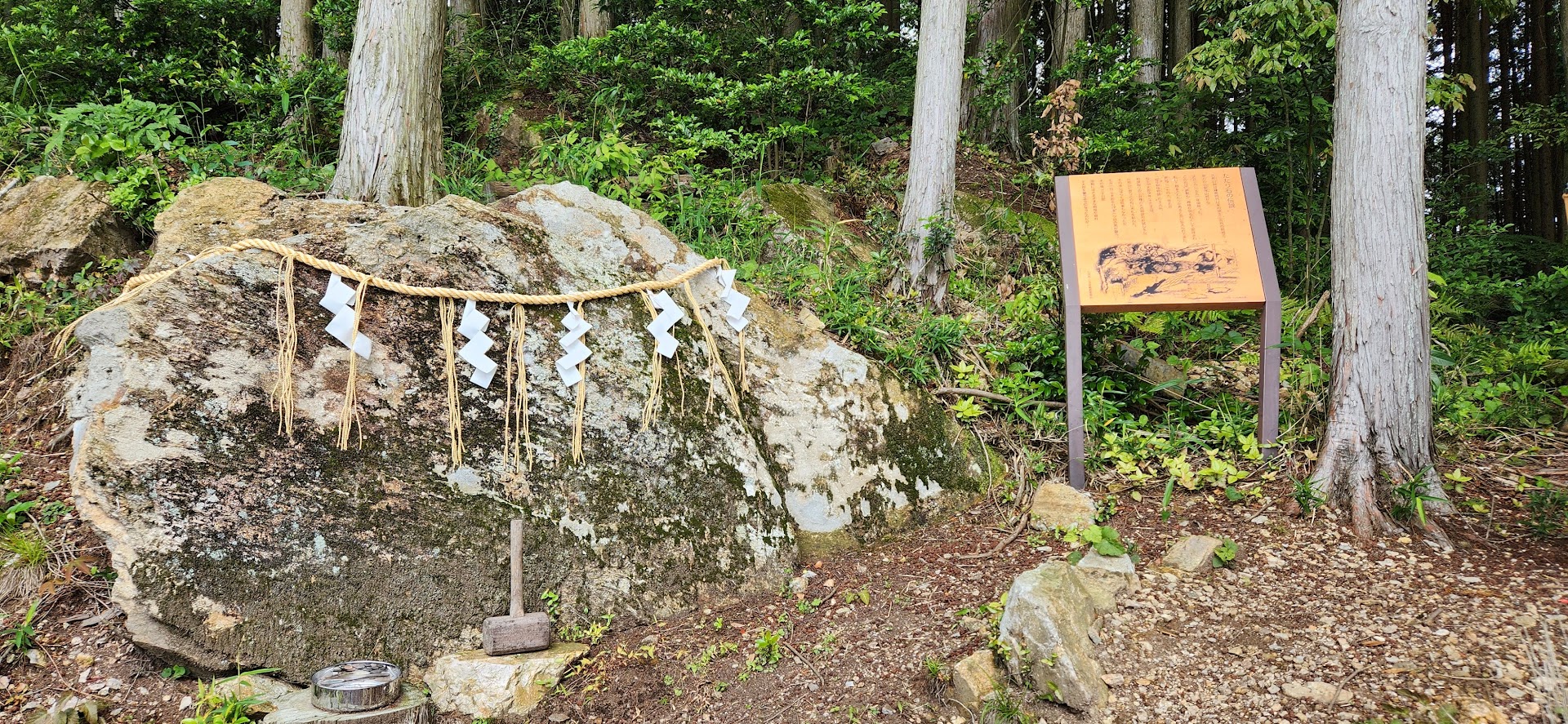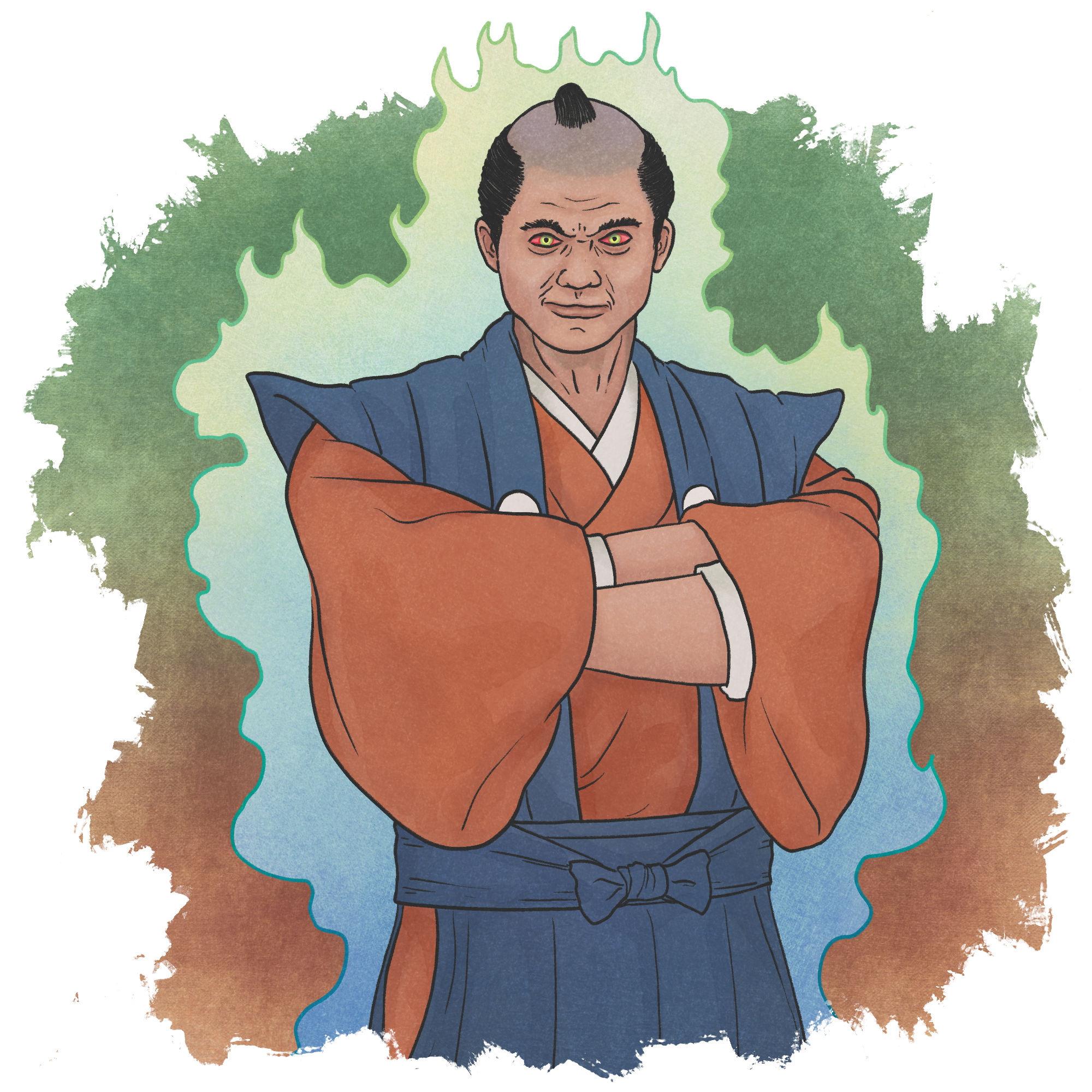Today I’d like to share another story and painting from the upcoming Echizen-Wakasa Kidan. This story comes from a book called Echizen no kuni meiseki kō. Books like this were common in the Edo period, used as a kind of travel almanac that describes lands, people, and stories from various provinces. This sort of “travel story” was all the rage back then, and not only books but artworks were massed produced to satisfy the travel bug that people all over the country had. The famous ukiyoe landscapes by Hiroshige are another example of this, showcasing faraway lands and provinces that most people would not have the chance to visit. The prints were sold like “Wish You Were Here” postcards are sold today.
Anyway, this book is not a book of ghost stories, but a random hodgepodge of this and that, and this kidan is one that Nagano-san found in its pages. The translation below is straight from the original text, so it reads almost like a report of the legend. The author event notes that the dates in the story appear out of order, hinting that something fishy is going on here… (Note this is not the final text from the book, just a rough draft.)
The Giant Cat Disguised as a Wife
Inōe Tsubasaaki “Echizen no kuni kokon meiseki kō, Asuwa-gun”
The Horowa Daigongen monument (Shinmei Shrine, Hōei 4, Fukui City) located in front of the Hakusan shrine is colloquially known as “the cat’s grave.”
Inscription: “An auspicious day in March, Shōhō 2 (1645), erected by Kawasumi Kakuhira Okikatsu.”
During the Shōō era (1652-55), Kawasumi Okikatsu’s wife suddenly had a double. It was not possible to distinguish which one of them was the real wife and which one was a yōkai based on their usual behavior.
One evening, during a drinking party, several flies landed on one of the wives and, seeing her wiggle her ear in order to shoo the flies away, Okikatsu grabbed his bow from the adjacent room and shot her to death. A short time after, the wife transformed into a giant cat. This is recorded in a book called Eikyōroku.
Is is said that this cat was deified as Horowa Gongen; according to one theory, Horowa was the protector god of Kawasumi Okikatsu’s birthplace, and this monument was erected in thanks to the deity after he prayed to it for help in dispelling the yōkai.
Kawasumi Okikatsu was a landed samurai in Fukui Domain with an estate worth 200 koku. Since Shōhō took place before Shōō, the recording of Shōhō in Eikyōroku may be due to an error in transmission.

Interesting enough, this story is a familiar pattern found all over Japan. In fact, a few years ago I covered a similar story in Shokoku hyakumonogatari during A-Yokai-A-Day. Here’s that one for reference:
Sugiyama Hyōbu of Dewa Province’s Double Wife Disaster
Shokoku hyakumonogatari
There was a samurai from Dewa Province named Sugiyama Hyōbu. One night his wife went out the back door to use the outhouse, returned a little while later, and went to bed. A short while later there was a knock on the door.
“Who’s there?” asked Hyōbu.
His wife’s voice answered. Hyōbu was perplexed. He opened the door to let her in. Then he lit a lantern and inspected the two women closely. They were identical to each other in every way. He was even more perplexed.
When morning came, Hyōbu put both of his wives to work in different areas of the house. No matter how he tested them, there was no difference between them at all. He continued to scrutinize them, to no avail, when finally, someone told him:
“A henge will always have round hands, like paws.”
So Hyōbu inspected both of his wives’ hands. As it turned out, one of the wives’ hands were slightly round! Surely she was the henge. So Hyōbu immediately cut her head off.
Unfortunately, that one turned out to be his actual wife.
Therefore, the other wife must surely be the henge! Hyōbe went to cut off her head too. She tried everything to stop him, begging, lamenting, and cursing him, but he did not listen. He cut off her head.
But upon close inspection, this one turned out to be his actual wife.
Hyōbe was completely perplexed. He left the wives’ corpses out for a few days, but neither one changed at all.
Such strange things do happen, don’t they?
One more note — the Horowa Shrine still stands in Fukui today, a small addition build aside the much larger Shinmei Shrine. I’ve been there a few times, and it is absolutely dedicated to cats. There is a spot to leave donations of dried fish for the cat god, and there are cat charms and cat statues there.
There is one more cat story related to this shrine, so as a bonus, I’ll share it below. This one appeared not in an Edo period book, but in a Meiji era newspaper!
The Curse of the Calico Cat
Fukui Shinbun, Meiji 16, February 27
The following story doesn’t seem possible, but I am recording it just as I have heard it.
There is a calico cat kept at the home of Monzō, a resident of Tenga Village, Yoshida County, Fukui Prefecture (now Fukui City) who is very old and turned ninety-nine this year. Everyone in the house loves it, saying, “Mike, Mike,” and petting and rubbing it.
Recently, while Monzō was away and his son was watching the house, this Mike repeatedly suddenly changed form, turned to Monzō’s wife, told her, “Say nothing of this to anyone,” then put on a conical hat and performed various dances.
At first, Monzō’s wife kept this a deep secret and did not speak of it to anyone, but it was so incredible that she eventually told Monzō in secret. Monzō was so astonished that he said, “What kind of curse could fall upon us for owning such a cat?” He immediately left for Fukui City to make an offering at the Nekomata Shrine (Horowa Shrine) on the grounds of the Shinmei Shrine (Fukui City, Hōei). He prayed with his whole heart, “Please make it so that Mike does not come back to our house ever again,” This was on February 17.
It seems the Nekomata Shrine answered his prayer. When Monzō returned home, Mike was nowhere to be seen. While he was rejoicing that his wish had been granted, his wife suddenly looked unwell, and she stormed about the room as if she had gone mad, rambling on and on about incoherent things. Even today she still hasn’t gotten better. And so, the neighbors all say that she was cursed by the old cat, because she betrayed its request and told someone its secret.


